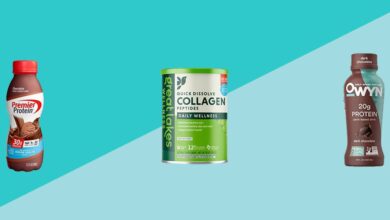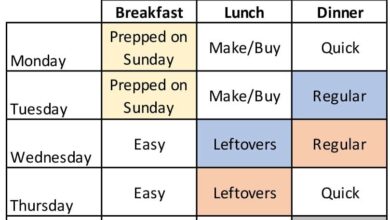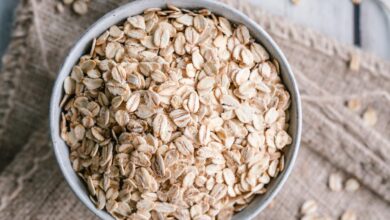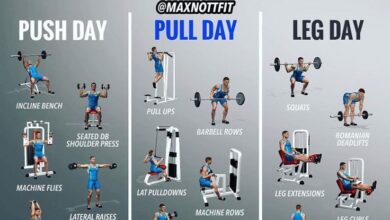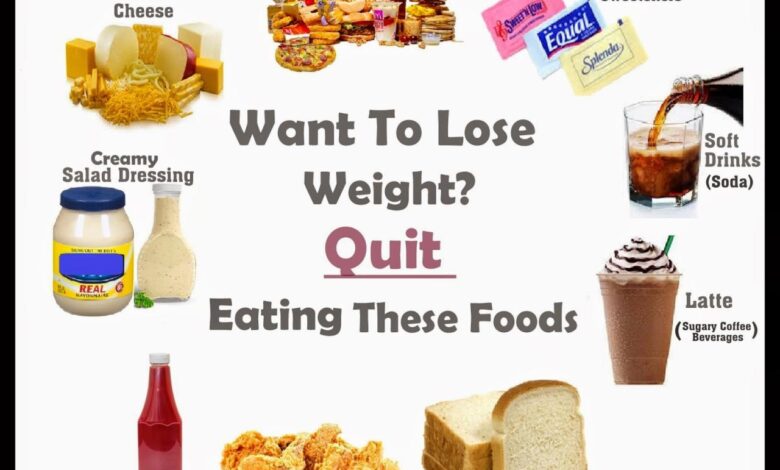
Not Eating Enough to Lose Weight: Is It Really Working?
Not eating enough to lose weight is a common misconception, often fueled by the desire for quick results. While reducing calorie intake is a fundamental aspect of weight loss, going too extreme can actually hinder your progress. This article delves into the potential pitfalls of undereating and highlights the importance of a balanced approach to achieve sustainable weight loss.
We’ll explore the signs of not eating enough, the impact on your metabolism and muscle mass, and the importance of consulting professionals to ensure you’re on the right track. By understanding the complexities of weight loss, you can develop a plan that supports your health and helps you reach your goals.
Understanding the Basics of Weight Loss
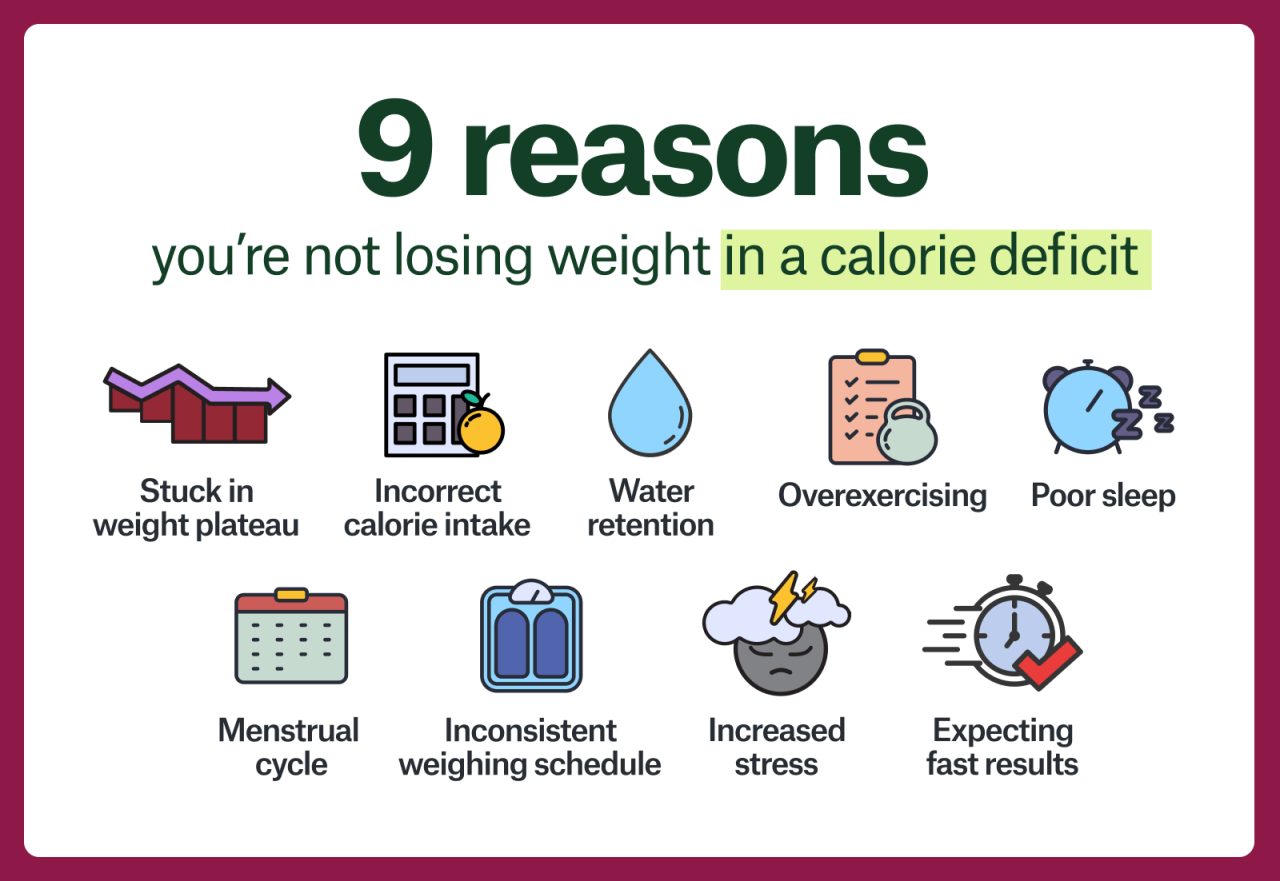
Weight loss is a journey that requires a combination of factors, but one fundamental principle remains constant: the relationship between calorie intake and energy expenditure. To shed those extra pounds, it’s crucial to understand this relationship and its implications for your weight loss goals.
Calorie Intake and Weight Loss
Calorie intake refers to the total number of calories you consume through food and beverages. Every food item contains a specific amount of calories, which are units of energy that our bodies use for various functions, including physical activity, metabolism, and maintaining body temperature.
When you consume more calories than your body needs, the excess energy is stored as fat, leading to weight gain. Conversely, when you consume fewer calories than your body needs, it taps into stored fat reserves for energy, resulting in weight loss.
Creating a Calorie Deficit
To achieve weight loss, it’s essential to create a calorie deficit, meaning you consume fewer calories than your body burns. This deficit forces your body to utilize stored fat for energy, leading to weight reduction. The magnitude of the calorie deficit determines the rate of weight loss.
For example, a larger calorie deficit will result in faster weight loss than a smaller deficit.
Calorie-Counting Methods
Several methods can help you track your calorie intake and create a calorie deficit.
- Food Diaries:This involves meticulously recording everything you eat and drink throughout the day, including portion sizes. You can use a notebook, spreadsheet, or dedicated calorie-counting apps to track your intake.
- Calorie-Counting Apps:These apps provide comprehensive databases of food items and their calorie content. You can easily scan barcodes, search for specific foods, and track your calorie intake in real-time. Some apps also provide personalized recommendations based on your weight loss goals and dietary preferences.
It’s a common misconception that eating less automatically leads to weight loss. Sometimes, restricting calories can actually backfire, leading to a slower metabolism and stubborn weight. It’s all about finding the right balance, and that means thinking outside the lox, as this article points out.
By focusing on nutrient-dense foods and mindful eating, you can nourish your body and achieve sustainable weight management.
- Online Calorie Calculators:These calculators estimate your daily calorie needs based on factors such as age, gender, height, weight, and activity level. This provides a starting point for determining your calorie deficit. However, it’s important to consult with a healthcare professional for personalized guidance.
Recognizing Signs of Not Eating Enough: Not Eating Enough To Lose Weight
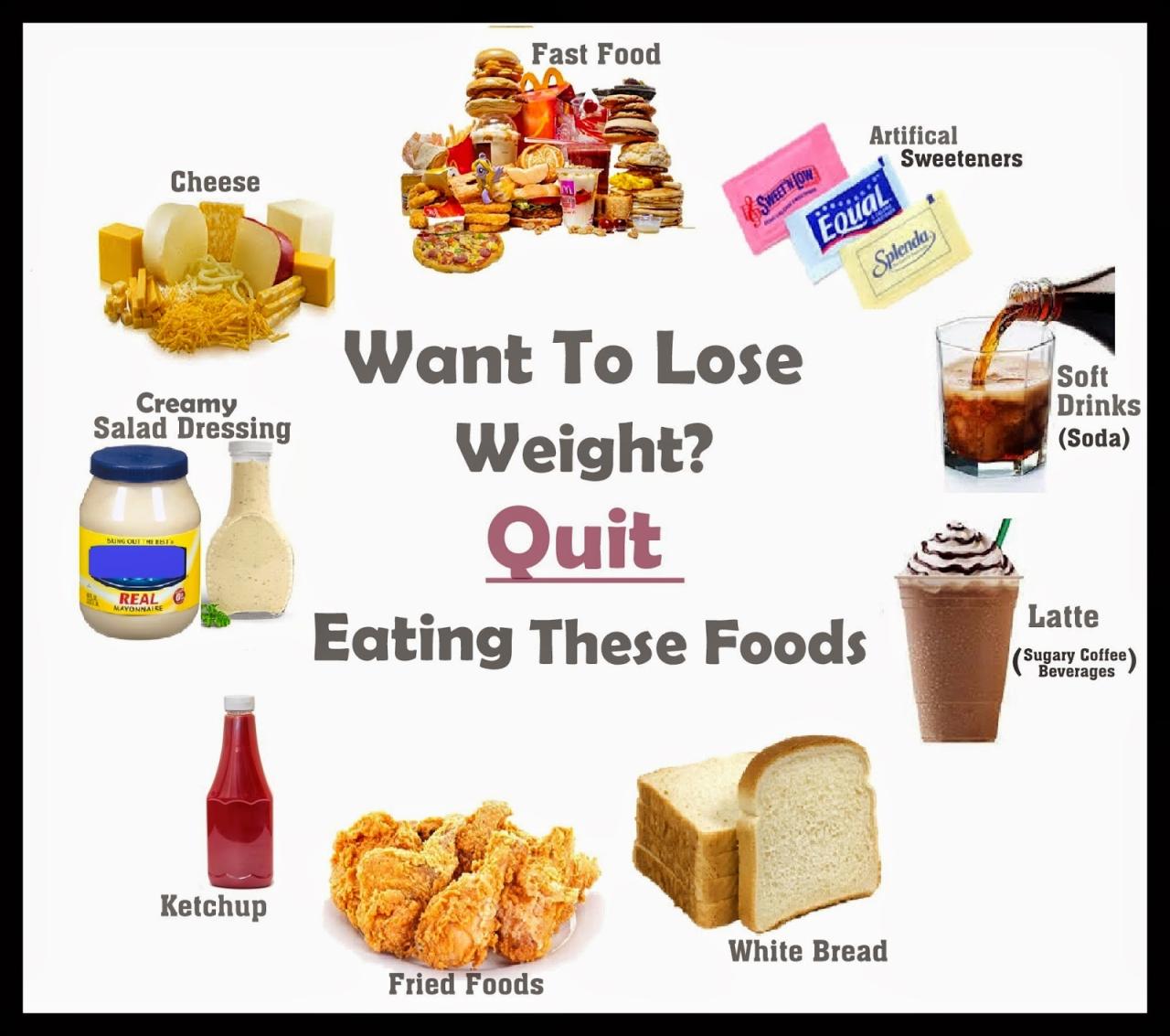
Restricting calories is a common weight loss strategy, but it’s crucial to understand the potential risks and recognize the signs of undereating. While calorie restriction might initially lead to weight loss, it can have adverse effects on your health and well-being if not done properly.
Physical Symptoms of Calorie Restriction
The body signals when it’s not getting enough energy. Physical symptoms are the body’s way of communicating its needs. Pay attention to these signs and adjust your eating habits accordingly.
- Fatigue:Feeling constantly tired and lacking energy, even after a good night’s sleep, can be a sign of insufficient calorie intake. Your body needs fuel to function, and when it’s not getting enough, you’ll experience fatigue.
- Dizziness:Feeling lightheaded or dizzy can indicate low blood sugar levels, which can occur when you’re not consuming enough calories.
- Headaches:Frequent headaches can be a sign of dehydration or low blood sugar, both of which can be caused by undereating.
- Constipation:When you’re not eating enough fiber, it can lead to constipation. Fiber is essential for digestive health and regularity.
- Hair Loss:Severe calorie restriction can impact hair growth and lead to hair loss. This is because hair growth requires adequate nutrients, which can be depleted when you’re not eating enough.
Psychological Effects of Undereating
Undereating can significantly impact your mental health. The brain needs sufficient energy to function optimally. When you’re not eating enough, it can lead to mood swings, irritability, and difficulty concentrating.
- Mood Swings:Your mood can be significantly affected by undereating. You might experience irritability, anxiety, or depression due to hormonal imbalances and low blood sugar.
- Irritability:Feeling easily frustrated or angered is a common sign of undereating. Your brain is not getting the fuel it needs to function properly, leading to heightened sensitivity and irritability.
- Difficulty Concentrating:Your ability to focus and concentrate can be impaired when you’re not eating enough. You might find yourself easily distracted and struggling to complete tasks.
Risks Associated with Prolonged Calorie Restriction
Prolonged calorie restriction can have serious health consequences. It’s essential to understand the risks involved and prioritize a balanced and healthy approach to weight loss.
It’s a common misconception that eating less is the key to weight loss. While calorie restriction plays a role, it’s equally important to ensure your meals are nutrient-rich and satisfying. A bacon ham egg wrap might seem indulgent, but with the right ingredients, it can be a balanced breakfast that keeps you full and energized throughout the morning, preventing those mid-day cravings that often lead to overeating.
- Nutrient Deficiencies:When you restrict calories, you might not be getting enough of the essential vitamins and minerals your body needs. This can lead to various health problems, including fatigue, hair loss, and weakened immune system.
- Slowed Metabolism:Prolonged calorie restriction can slow down your metabolism. Your body adapts to the reduced calorie intake by burning fewer calories at rest. This can make it harder to lose weight and maintain a healthy weight in the long term.
- Hormonal Imbalances:Calorie restriction can disrupt hormonal balance, leading to irregular periods, decreased bone density, and increased risk of heart disease.
- Increased Risk of Eating Disorders:Restricting calories can contribute to the development of eating disorders, such as anorexia nervosa or bulimia nervosa. These disorders can have serious and potentially life-threatening consequences.
The Impact of Undereating on Weight Loss
While restricting calories is a fundamental aspect of weight loss, going too far can backfire. Undereating, or consuming significantly fewer calories than your body needs, can hinder your weight loss efforts in several ways.
The Role of Muscle Mass in Weight Loss
Muscle mass plays a crucial role in metabolism and weight loss. The more muscle mass you have, the more calories your body burns at rest, even when you’re not actively exercising. This is because muscle tissue is metabolically active, meaning it requires energy to function.
The Impact of Undereating on Muscle Mass
When you severely restrict your calorie intake, your body goes into a state of starvation. To conserve energy, it starts breaking down muscle tissue for fuel. This process is called muscle catabolism.
Losing muscle mass slows down your metabolism, making it harder to lose weight.
This is because your body now burns fewer calories at rest, even if you maintain the same level of physical activity.
Examples of Undereating Leading to Muscle Loss, Not eating enough to lose weight
* Extreme Diets:Diets that drastically cut calories, such as very low-calorie diets (VLCDs), can lead to significant muscle loss. This is because they often lack sufficient protein, which is essential for muscle maintenance and repair.
Long-Term Calorie Restriction Even if you don’t follow an extreme diet, restricting your calories for an extended period can still lead to muscle loss. This is because your body adapts to the reduced calorie intake and starts conserving energy by reducing muscle mass.
I’ve been trying to lose weight, but I’m struggling to eat enough. I know I need to fuel my body, but it’s hard to get in enough calories when I’m feeling so sluggish. Maybe I need to focus on foods that are good for my gut health, like miso, which is known for its miso gut health benefits.
A healthy gut could be the key to feeling more energetic and motivated to eat more!
Lack of Protein Intake A lack of protein in your diet can also contribute to muscle loss. Protein is the building block of muscle tissue, and if you don’t consume enough, your body will break down existing muscle to meet its protein needs.
Strategies for Healthy Weight Loss
It’s crucial to approach weight loss in a healthy and sustainable manner. This means creating a calorie deficit while ensuring your body gets the nutrients it needs. Here’s how you can do it:
A Balanced Meal Plan
A balanced meal plan is key to ensuring you get all the nutrients your body needs while creating a calorie deficit. This means focusing on whole, unprocessed foods and limiting your intake of sugary drinks, processed foods, and unhealthy fats.
Here’s an example of a balanced meal plan for a day:
- Breakfast:Oatmeal with berries and nuts (approximately 300 calories)
- Lunch:Salad with grilled chicken or fish and a side of quinoa (approximately 400 calories)
- Dinner:Baked salmon with roasted vegetables (approximately 500 calories)
- Snacks:Fruits, vegetables, nuts, or yogurt (approximately 100-200 calories per snack)
This meal plan provides a balanced intake of protein, carbohydrates, and healthy fats, while also keeping your calorie intake within a reasonable range.
The Importance of Regular Exercise
Regular exercise plays a crucial role in weight loss by burning calories and building muscle mass. Muscle burns more calories than fat, even at rest, so building muscle can help you maintain a healthy weight long-term.
Sample Workout Routine
A well-rounded workout routine should include both cardio and strength training. Here’s a sample routine you can follow:
- Cardio:Aim for at least 30 minutes of moderate-intensity cardio exercise most days of the week. This could include activities like brisk walking, jogging, swimming, or cycling.
- Strength Training:Aim for 2-3 strength training sessions per week, focusing on major muscle groups. You can use weights, resistance bands, or your own body weight. Here’s a sample strength training routine:
- Warm-up:5 minutes of light cardio, such as walking or jogging in place.
- Squats:3 sets of 10-12 repetitions.
- Push-ups:3 sets of as many repetitions as possible.
- Lunges:3 sets of 10-12 repetitions per leg.
- Plank:Hold for 30-60 seconds.
- Bicep curls:3 sets of 10-12 repetitions.
- Triceps dips:3 sets of 10-12 repetitions.
- Cool-down:5 minutes of stretching.
Remember to listen to your body and adjust the intensity and duration of your workouts as needed.
The Importance of Consulting Professionals
When embarking on a weight loss journey, it’s crucial to recognize that it’s not just about shedding pounds but also about achieving and maintaining a healthy lifestyle. This is where seeking guidance from qualified professionals becomes paramount.
Consulting a registered dietitian or nutritionist offers numerous benefits. They are experts in nutrition science and can provide personalized meal plans tailored to your individual needs, goals, and dietary preferences. They can help you identify potential nutritional deficiencies, develop sustainable eating habits, and navigate the complex world of food labels and fad diets.
The Role of a Doctor
A doctor plays a crucial role in monitoring your overall health and assessing any potential risks associated with weight loss. They can perform physical examinations, order necessary tests, and identify underlying health conditions that might affect your weight loss journey.
For instance, they can rule out thyroid issues or hormonal imbalances that can impact metabolism and weight management.
Regular check-ups with your doctor are essential, especially if you are considering significant weight loss. They can help you make informed decisions about your weight loss strategy and ensure your safety throughout the process.
Finding Qualified Professionals
Locating a registered dietitian or nutritionist in your area is relatively straightforward. You can start by searching online directories like the Academy of Nutrition and Dietetics website or the American College of Sports Medicine’s website. Additionally, you can ask your doctor for referrals to trusted professionals in your area.
When choosing a professional, it’s important to consider their qualifications, experience, and communication style. Look for someone who is certified by a reputable organization and has a proven track record of success. You should also feel comfortable communicating with them and asking questions about their approach to weight loss.
Last Point
Remember, weight loss is a journey, not a sprint. It’s crucial to prioritize your health and well-being by adopting a balanced approach to eating and exercise. Consulting professionals can provide personalized guidance and ensure you’re making safe and effective choices.
With the right knowledge and support, you can achieve sustainable weight loss and feel your best.


